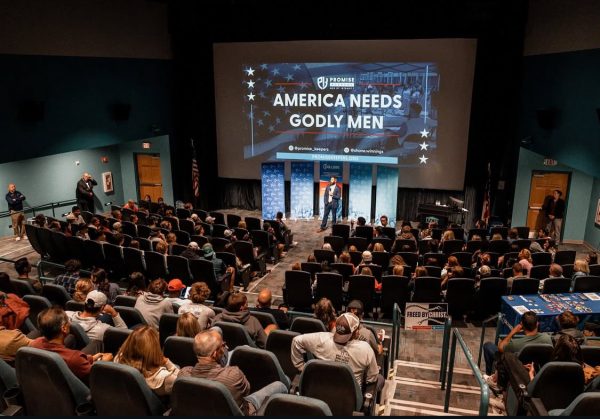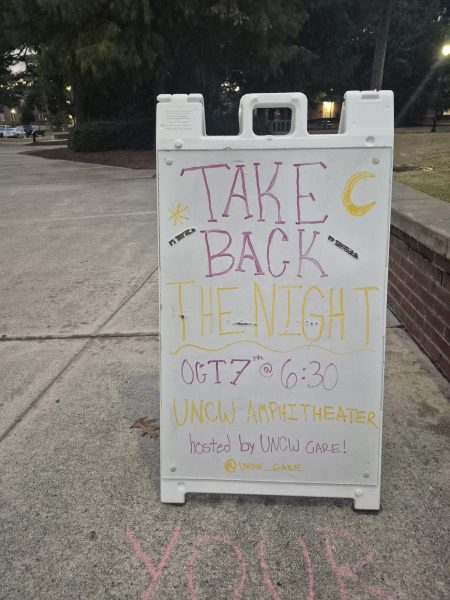Critical race theory and how it is affecting Wilmington
Over the past year, a new term has entered the political lexicon in the United States. Critical race theory, an theory in legal academia analyzing race as it relates to the framework of society, has taken on a new meaning among conservative media outlets, activists and political groups. Many claim these concepts, historically reserved for scholars, are being taught in our nation’s K-12 public schools.
The idea of educators including these concepts in the curriculum for children has been largely attributed to Christopher Rufo, a documentary filmmaker turned conservative activist who formed a legal coalition with the stated goal of “abolish[ing] critical race theory programs from American life.” Rufo’s campaign gained attention in conservative circles, with Fox News pundit Tucker Carlson applauding the critique of anti-racism teachings, which Rufo and others claim are racist themselves. Coverage of Rufo’s campaign against critical race theory included segments from several particularly rowdy school board meetings in Loudoun County, Virginia last month. However, background checks carried out by the watchdog group Media Matters on speakers at the meetings, as well as concerned parents appearing on news outlets to decry the teachings of critical race theory in public schools revealed that many of the most vocal critics have shared experience as current or former employees of conservative think tanks, political action committees or campaigns for public office.
Nevertheless, the issue’s coverage continues to fan the flames of anger in outraged parents who believe their children are being indoctrinated by their teachers with ideas that Rufo describes as “a grave threat to the American way of life.” Parents nationwide sent letters, emails and expressed their concerns about their children being indoctrinated with toxic ideals, including in Wilmington’s neighboring Brunswick County.
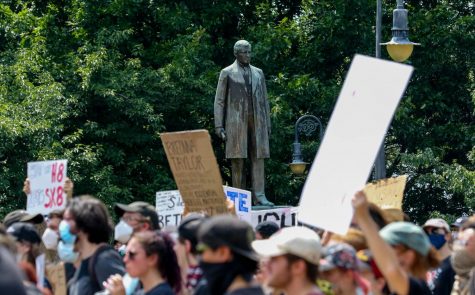
To soothe the worries of concerned parents, the Brunswick County School Board made alterations to their employees’ political activities policy, to “ensure that social theories of any kind (i.e., Holocaust denial theory, 9/11 theory, critical race theory) are not presented to students”, as well as affirming “that curricular standards are taught using well documented, factual resources and not opinion or conjecture.”
“We would like to present factual information in a very neutral manner,” said Gerald Benton, a member of the Brunswick County school board who describes himself as a conservative. “We have the ability to present things naturally, we do not necessarily pick inflammatory items, information presented in an inflammatory way, or a way that could be presented as your pushing an opinion. I think the facts are the facts. The good, the bad, the ugly if you will of history. Nobody is denying slavery exists, nobody’s denying that racism and xenophobia and marginalization happen.”
Benton specified that while critical race theory and other social theories outlined in the policy are not being taught in Brunswick County schools, the policy revisions were necessary to put parents at ease that their children will not be politically indoctrinated in their schools, rather being taught history and social science in a way that is deemed objective. Teachers should present equal parts of both sides of an issue, leaving parents to handle more controversial issues in whatever way they see fit.
Benton stated that much of the controversy surrounding critical race theory stemmed from the lack of a singular solid definition of the term, saying that he would agree that this lack of a solid definition is being used to create fear and controversy.
“I completely agree, that’s the problem we have. I went through a big meeting last night with this two-hour presentation on it to the general public, and the amount of misinformation presented by a county commissioner, was unreal,” said Benton.
The most outspoken of the Brunswick County commissioners is Pat Sykes, who provided the following statement to WECT.
“As a commissioner, I believe the inclusion of such theories is an intentional effort to indoctrinate children and others with a specific political ideology. This is a part of a far-left agenda to divide us on race, to victimize Black students and to make white students feel guilty. They want to take God out of our country and tear down our constitutional republic and replace it with a socialist system. As a citizen of this great country, I will do what I can to protect and defend my God, the United States of America, North Carolina and Brunswick County from this far-left movement,” said Sykes.
The formation of critical race theory as an academic discipline began with Derrick Bell, the first African American law professor to receive tenure at Harvard University. Bell’s academic focus was on civil rights and desegregation. He wrote on how individual racism and biases became codified into law and institutionalized into the legal and judicial systems of the United States. Many of Bell’s works are still used as course materials for law schools, with “Race, Racism and American Law” being reprinted into six different editions.
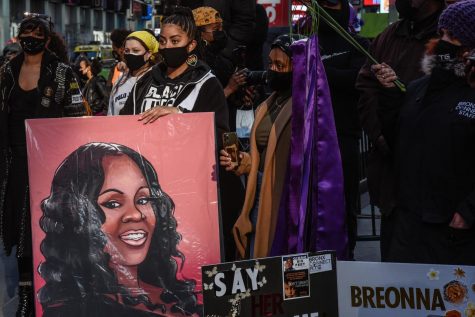
Wilson Okello, assistant professor in UNCW’s Department of Educational Leadership gave insight on the importance of critical race theory and often equated efforts of anti-racism in academia.
“When we talk about anti-racism, we’re at its best, we’re calling on structural changes that, that take up issues of equity, which attempts to put those who have been most marginalized in equal standing, equal legal footing with all others in society,” said Okello. “I think, anti-racism, critical race theory, critiques of history threaten the natural order, or what we’ve come to understand as a normal sort of order in society. Anti-racism as an idea threatens traditional teachings of history, traditional ways of knowing the ways that our society largely has functioned to benefit some people and not others.”
Critical race theory developed from a range of academic disciplines that explored how social constructions and institutions enabled prejudice and bias against certain groups of people. According to Kimberlé Crenshaw’s Connecticut Law Review article titled “Twenty Years of Critical Race Theory: Looking Back to Move Forward,” critical race theory gained traction in the post-civil rights era when momentum for racial justice was declining. Crenshaw is also the co-author of an influential 1993 book on the theory titled “Words That Wound: Critical Race Theory, Assaultive Speech, and the First Amendment.”
As the 1980s approached, America was ready to declare itself the victor over racism and promote a post-racial society that did not see color. Critical race theory asks society to reject that belief, instead theorizing that racism is entrenched in America’s founding, and therefore its values, institutions and laws. The theory provides a framework for scholars to examine policies that disadvantage certain racial groups, and because the theory says that racism contributed to all societal disadvantages, it can be applied to any academic discipline. Crenshaw defends critical race theory in a September 2020 interview with Vox, comparing the theory to academia’s analysis of class.
“We had significant debate with folks who see class as the singular axis of subordination,” Crenshaw told Vox. “But class is not natural. It’s also a construction that has legal ramifications. If you can analyze law and other systems to show how class relations are reproduced, and you call that critical legal theory, then why can’t we pay attention to the way that racial power is reproduced through law?”
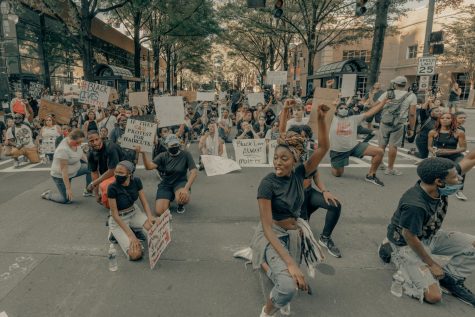
Angie Zombek, an assistant history professor at UNCW makes the case that components of critical race theory have a strong backing within the history of the United States itself.
“I think that the way that critical race theory encourages people to confront the idea that race is socially constructed and to acknowledge its existence and its impacts in the United States is something that’s extraordinarily important. Quite frankly, that’s not me exhibiting any bias, this is American history,” said Zombek.
Zombek goes on to detail the historical context of the core claims of critical race theory, placing specific emphasis on the reconstruction of the South following the Civil War.
“After the Civil War, we get the Black Codes in 1865. They served to replace the slave codes, and essentially control the behavior of free Blacks. They allowed some freedoms, like the right to marry, for example, but they also imposed a whole bunch of other restrictions on employment or movement. In 1866, radical Republicans in Congress come up with a civil rights bill of 1866, which becomes the 14th Amendment, which we know grants birthright citizenship and equal protection. Reconstruction ends, resulting in the establishment of Jim Crow laws. Then Plessy v. Ferguson, sanctioning legal segregation. So that’s the overarching construct of critical race theory, recognizing that race is socially constructed, and constraints on race are socially constructed,” said Zombek.
Okello worries that if legislation can be easily passed to ban critical race theory, those who seek to eliminate the teaching of threatening ideas may go much further.
“The question for me becomes, well, what’s next? We have started to say that the teaching of history needs to look and be presented a certain way. Are we calling for a whitewashing of history? I was saying that centering Black people, or Latinx histories or indigenous histories, is somehow threatening to the natural way of doing things. I think that’s exactly what can happen.”
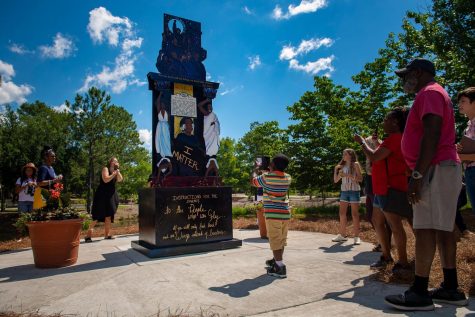
The good thing for college students is that universities largely have free determination over what is taught in the classroom. That means no one is going to ban critical race theory or related academic disciplines at UNCW. However, the recent controversy does bring up questions on how we teach about race generally.
“You can begin to say that those who are moving for political mandates claim to have an expertise that they don’t have in what educators like myself have invested years of deep study in,” said Okello. “I think we get to a place where, again, folks who aren’t invested, that haven’t done the research, haven’t done the reading, and are just functioning off opinion, as a substitute for deep analysis to make decisions. That feels like a slippery slope to me.”
Okello rounded out his statements by admitting that while the work we have ahead of us to build a more equitable society may be uncomfortable, it is necessary. He asks society to examine what kind of world we want to live in and how to reach that vision of America.
“Accomplishing [social equity] requires us to challenge the ways or to look hard at the ways in which some people experience society experience policies, experience what it means to simply exist in their bodies in this world, as well as how others can have a fundamentally different experience. I believe that individuals do want a world where others can experience the dignity that is deserving of all people. If that is the case, then that calls on us to do some real personal work, and the personal work that we’re talking about is going to be uncomfortable. I think that’s how we achieve the sort of dignity that is that individuals deserve.”


